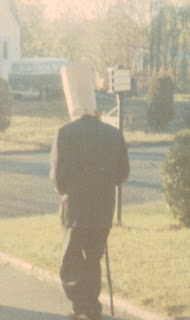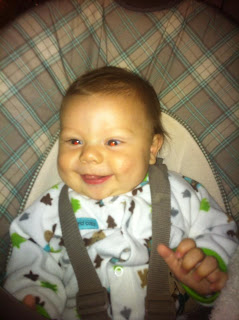What do I do now???
I wish I were the kind of writer who approached a new book
methodically with notes, a plot outline, and a list of characters and all of
their quirky traits noted for consistency.
methodically with notes, a plot outline, and a list of characters and all of
their quirky traits noted for consistency.
I wish I were the kind of writer who kept copious notes—a la
Sue Grafton who I heard say that she has countless notebooks dedicated to one
Kinsey Milhone mystery alone!—to refer back to during and after a book’s
completion. (This would be a good way to avoid the dreaded “did I already kill
that character” after a book has gone to the printer.)
Sue Grafton who I heard say that she has countless notebooks dedicated to one
Kinsey Milhone mystery alone!—to refer back to during and after a book’s
completion. (This would be a good way to avoid the dreaded “did I already kill
that character” after a book has gone to the printer.)
Sadly, I’m not.
I’m the kind of writer who hears a snippet of dialogue and
who closes her eyes, going into a trance, hoping she can remember it.
who closes her eyes, going into a trance, hoping she can remember it.
I’m the kind of writer who writes brilliantly, in her head,
at three in the morning and promises herself that she’ll remember everything
she wrote and put it to paper the next morning.
(Usually, what I end up with is a question mark at the beginning of the
page and a random word like “orange”…something that is supposed to jog my
faulty memory. It never does.)
at three in the morning and promises herself that she’ll remember everything
she wrote and put it to paper the next morning.
(Usually, what I end up with is a question mark at the beginning of the
page and a random word like “orange”…something that is supposed to jog my
faulty memory. It never does.)
I’m the kind of writer who when she does have a story in her
head, sits down to write it only to find out her characters have a completely
different idea of what’s going to happen and when.
head, sits down to write it only to find out her characters have a completely
different idea of what’s going to happen and when.
I’m the kind of writer, who, when asked what her profession
is says “freelance college textbook editor” because I forget that when I’m not
editing college textbooks, I’m creating stories. Lots of stories. Some that will never see the light of day.
is says “freelance college textbook editor” because I forget that when I’m not
editing college textbooks, I’m creating stories. Lots of stories. Some that will never see the light of day.
I’m fascinated by what makes writers tick and the processes
they employ to get their stories written.
I’m also fascinated by people who can accomplish a lot in short periods
of time. So, today, as I embark on a new
writing journey—the second in my Maeve Conlon ONCE UPON A LIE series—I ask you,
regardless of whether or not you are a writer:
what do you do before starting a new project and how has this tactic
proved successful for you?
they employ to get their stories written.
I’m also fascinated by people who can accomplish a lot in short periods
of time. So, today, as I embark on a new
writing journey—the second in my Maeve Conlon ONCE UPON A LIE series—I ask you,
regardless of whether or not you are a writer:
what do you do before starting a new project and how has this tactic
proved successful for you?
Maggie Barbieri




I have a one-two punch of things that aren’t so obviously related, but I always do them together:
First, I take a long walk with some note-taking materials in my pocket (and, as you point out, Maggie, I better make those notes clear and detailed if I take them!) and mull over the key elements of the project or goal: What am I starting out with? Why do I want to do this? How long do I think it will take and what does the checklist look to be? What am I lacking right now that I’m going to have to build or do to make this work?
Secondly, I take control of something that oddly, even though it’s not always easy, is one thing I find I can do with success. I try to get healthier physically. I try to eat better, move more, sleep right, get all my checkups and exams for everything from general health to new glasses and regular dental cleanings, etc. Once I feel like I’m healthier or that at least I’m on that road and getting that done right, it’s a success that fuels my mind and heart for doing the thing I want to do. When I feel strong through determined effort, I feel more confident that I’ll get from that long, thoughtful walk to a day when I say “Okay, THAT’s done!”.
And, then it’s onward from there, to a repeat with a whole new set of specifics!
Vicky! So good to hear from you. Your "getting healthy" suggestion kind of dovetails with me "clean out my office"–it's all about clearing the decks to the let the creative process begin. And to your "take a walk" suggestion, I find that driving in the car, music playing, also helps me get the juices flowing. So, it sounds like we do the same things, only differently, if that makes sense. Maggiexo
Hey, you know what they say about great minds, right?!
I wish I had a "system" or a "way of doing things." In reality I just do the blank stare and somehow things start forming.
That said, I am all about bullet pointing my chapters (usually 4 or 5 at a time) with the main points that have to happen in each. Stuff like: dead body found, first suspect walks into store, that sort of thing. That's my guideline and it doesn't interfere with what my characters want to do above and around the must haves.
Laura, bullet pointing your chapters sounds like a good idea. Let's discuss further over a Panera chocolate chip cookie, please. 🙂 Maggie
Name the time, I'm there.
Maggie, I used to make outlines. Only, I never could follow them. (I'm congenitally incapable of following a recipe or pattern as is. I must change things to "make it better." Amazingly, they usually do make it better.)
I always felt guilty about my forlorn and forgotten outlines until I read Elizabeth George's book on writing, Write Away, where she says she realized that the outlines were just to fool her that she knew what she was doing so she'd begin. Now, she has a broad outline of what needs to happen in the next 50 pages, and she writes until she needs another broad outline of what needs to happen in the next 50 pages. I've found that fits my writing style, so it's what I do. It allows those damn character to take over and run with the book, even changing the killer, etc. if I stupidly think that I know who the killer is starting out. Sounds similar to Laura's bullet-pointing of chapters. (And the E. George book is a great book on writing suspense or any novels.)
I'd love to join in with the Panera cookie meeting (since I do a lot of writing and editing at Panera's), but I suspect my Panera's is far, far away from yours and Laura's. 🙁